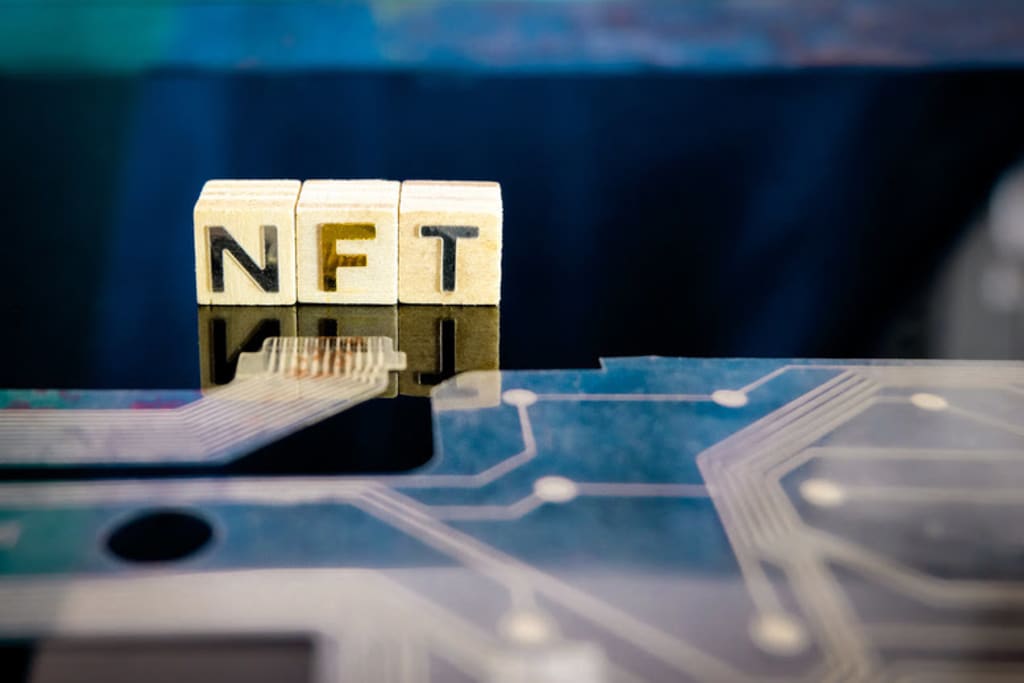
Introduction to NFT Games
In recent years, the emergence of Non-Fungible Tokens (NFTs) has brought a revolution to the world of digital assets and ownership. NFTs, which are unique digital tokens recorded on a blockchain, have found various applications, and one of the most exciting areas where they have made a significant impact is in the realm of gaming. NFT games are a type of video game where in-game assets and items are represented as NFTs on a blockchain. Unlike traditional video games, where players do not have true ownership of the items they acquire, NFT games provide players with actual ownership and control over their virtual assets. This revolutionary concept has sparked immense interest and has been gaining traction in the gaming industry. In this article, we will explore the numerous benefits that NFT games bring to the table.
Understanding NFTs and Blockchain Technology
Before diving into the benefits of NFT games, it's essential to understand the underlying technologies that make them possible. NFTs are built on blockchain technology, which is a decentralized and transparent digital ledger that records transactions. Each NFT represents a unique and indivisible item, whether it's a digital artwork, a virtual land, or a rare in-game item. Blockchain ensures the security, authenticity, and provenance of these assets, allowing for seamless ownership transfer and verification.
Benefits of NFT Games for Players
1. Ownership and Authenticity
One of the primary advantages of NFT games is that players have true ownership and control over their in-game assets. Unlike traditional games where items are tied to user accounts or controlled by game developers, NFTs enable players to buy, sell, and trade their virtual possessions freely. This ownership is secured by the blockchain, providing players with authenticity and the ability to prove the uniqueness and rarity of their items.
2. True In-Game Economy
NFT games create a genuine economy within the game world. Players can earn virtual currency or other valuable items through gameplay and then trade or sell them to other players for real-world value. This dynamic economy fosters player-driven markets, where supply and demand dictate prices and create opportunities for entrepreneurial players to profit from their in-game achievements.
3. Play-to-Earn Opportunities
In traditional games, players invest countless hours honing their skills and progressing in the game without any tangible rewards. However, in NFT games, players can earn rewards and income by participating in the game. Through gameplay, completing tasks, or achieving milestones, players can earn valuable tokens or assets that can be sold or traded. This opens up new avenues for players to monetize their skills and time spent in the virtual world, making gaming a potentially lucrative endeavor. Axie Infinity, Illuvium, Meta Cricket League are some examples of play-to-earn NFT games.
4. Interoperability and Cross-Game Assets
NFT games offer interoperability, allowing players to transfer and use their assets across different games and platforms. This means that a rare sword acquired in one NFT game can be utilized in another game that supports the same NFT standards. This cross-game functionality adds depth and value to players' collections, as their assets can have utility beyond a single game.
5. Collectible and Tradable Virtual Items
NFT games introduce the concept of collectibles, where players can acquire unique and limited-edition virtual items. These collectibles hold value and can appreciate over time, making them highly sought after by collectors and enthusiasts. Moreover, players can freely trade these items on specialized NFT marketplaces, allowing for a vibrant secondary market where virtual assets change hands, often fetching significant sums.
Benefits of NFT Games for Developers
1. Direct Monetization
Developers of NFT games have a unique opportunity for direct monetization. By creating and selling NFTs within their games, developers can earn revenue directly from the players' transactions. This removes the need for intermediaries and enables developers to generate income through the creation and sale of in-game assets, providing a sustainable and profitable business model.
2. Enhanced Player Engagement
NFT games have the potential to significantly enhance player engagement. The ownership and value of in-game assets create a sense of investment and attachment among players, driving them to spend more time and effort in the game. Additionally, the player-driven economy and the opportunity to earn real-world rewards foster a competitive and immersive environment that keeps players actively involved in the game.
3. Reducing Fraud and Scams
The transparency and security provided by blockchain technology help combat fraud and scams in NFT games. With NFTs, the provenance and authenticity of in-game items are verifiable, reducing the risk of counterfeit or stolen assets. This instills trust among players and creates a safer gaming environment where the value of their investments is protected.
4. Decentralized Gaming Ecosystems
NFT games leverage the decentralized nature of blockchain technology to create gaming ecosystems that are not controlled by a single entity. This decentralization ensures that game rules and asset ownership are governed by smart contracts and community consensus. It empowers players and fosters a sense of ownership and participation, as decisions regarding game development and governance are made collectively, ensuring a fair and democratic gaming experience.
Benefits of NFT Games for Artists and Creators
1. Empowering Artists and Creators
NFT games offer unprecedented opportunities for artists and creators to showcase and monetize their work. Digital artists can tokenize their creations as NFTs, providing them with a direct path to reach a global audience and earn recognition for their talent. This empowerment of artists and creators challenges traditional models of art distribution and opens up new avenues for creative expression.
2. Royalties and Passive Income
Through NFT games, artists and creators can embed royalty mechanisms into their NFTs. Whenever their creations are resold on the secondary market, they can receive a percentage of the transaction value, ensuring ongoing revenue and passive income streams. This incentivizes artists to continue producing high-quality content and rewards them for their contributions to the NFT ecosystem.
3. Expanding the Digital Art Market
NFT games contribute to the expansion of the digital art market by introducing a new audience of gamers who actively collect and appreciate digital assets. This market growth benefits artists and creators, as it creates a vibrant ecosystem where their work is valued and traded. The intersection of gaming and digital art unlocks new possibilities for collaboration and creative exploration.
Conclusion
NFT games bring numerous benefits to players, developers, and artists alike. From true ownership and authentic in-game economies to direct monetization opportunities and enhanced engagement, NFT games revolutionize the gaming landscape. They empower players, foster creativity, and provide new avenues for artists and creators to showcase and monetize their work. As NFT games continue to evolve and gain traction, we can anticipate a future where gaming and blockchain technology seamlessly intersect, creating immersive and rewarding experiences for all.





Comments
There are no comments for this story
Be the first to respond and start the conversation.